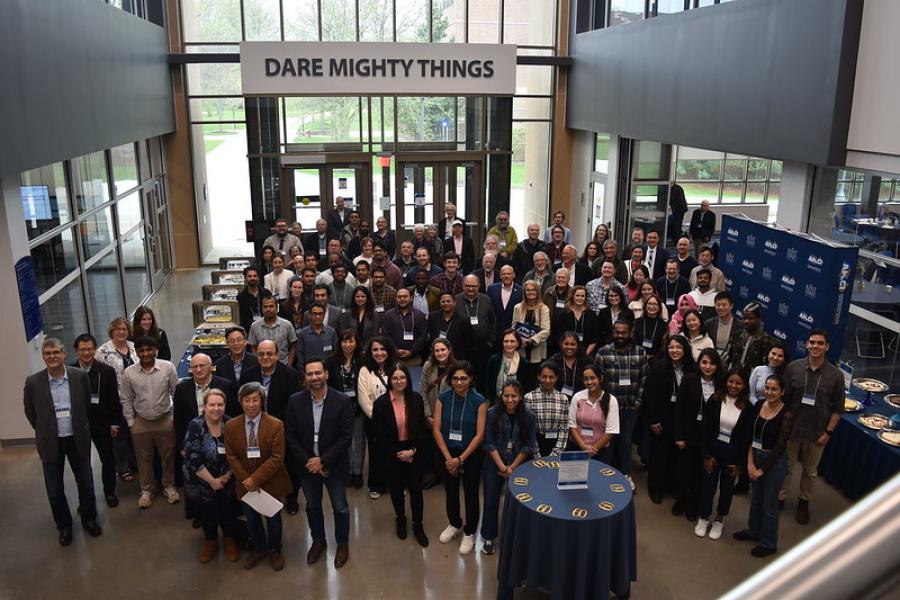Research & Science

IN A FLASH: Earth Month Wrap Up
Kent State celebrated Earth Month with an exceptionally full schedule of events, not the least of which were the activities on campus surrounding the total solar eclipse!

College of Public Health Offers Training for In-Demand Clinical Trial Researchers
┬ķČ╣┤½├ĮŌĆÖs College of Public Health is the only fully accredited public health college to offer an undergraduate pathway to clinical trials research, a rapidly expanding segment of the healthcare job market.

IN A FLASH: Flying Into The Future
The Center for Advanced Air Mobility within Kent State's College of Aeronautics and Engineering fosters research, testing and development of safe, efficient and sustainable solutions for passenger and cargo aircraft using autonomous aircraft technology.

Brain Health Research Institute Welcomes 2025 Summer Undergraduate Fellows
Eleven ┬ķČ╣┤½├Į students are taking part in the universityŌĆÖs Brain Health Research Institute Undergraduate Fellows Program for Summer 2025.

ŌĆśIf You Succeeded in Every Situation, YouŌĆÖd Learn NothingŌĆÖ
A resilient mindset and an innovative plan for the future helped Jude Carver recover from a competition setback as he looks ahead to Fall Semester 2025.

Celebrating 60 Years: Illustrious Past, Innovation for the Future
A star-studded lineup of scientists returned to ┬ķČ╣┤½├Į April 25-26 to mark the 60th anniversary of the Advanced Materials and Liquid Crystal Institute.

Bridging AI and Mental Health
Evan Dan, a junior at Solon High School who is enrolled in College Credit Plus (CCP) at ┬ķČ╣┤½├Į, received the ŌĆ£Best Paper AwardŌĆØ at the second International Conference on AI-Health for his research paper.

IN A FLASH: Kent State's Earth Fest
In April, Kent StateŌĆÖs Earth Fest was part of a full month of events and activities celebrating Earth Day and Earth Month.

IN A FLASH: Building Skills With 'Bots
Kid-friendly 'bots help young people learn about programming, counting, logical thinking and more.

Kent State Is the Place to BEE
Providing and maintaining a sustainable, bee-friendly environment has earned Kent State a Bee Campus USA certification. Our healthy on-campus pollinators not only help the environment but also provide opportunities for learning and community engagement.